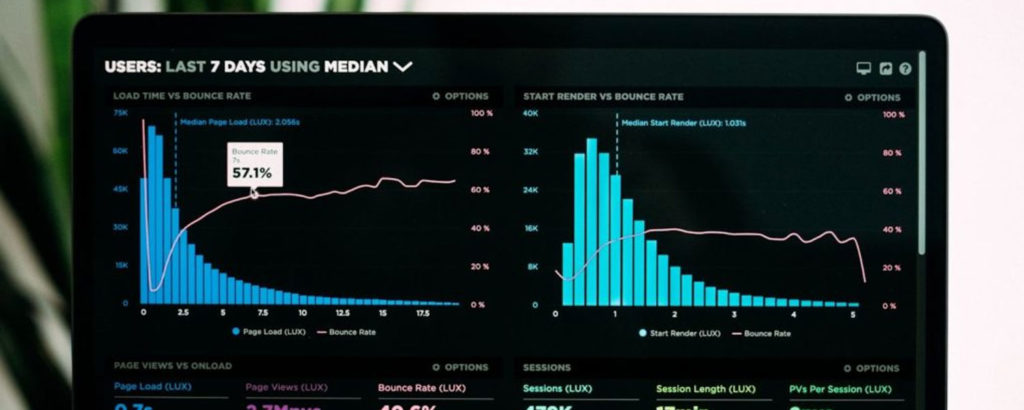The startup parameters for the Windows NT Server Service are:
Hive: HKEY_LOCAL_MACHINE
Key: System\CurrentControlSet\Services\LanmanServer\Parameters
Name: AlertSched
Type: REG_DWORD
Value: 1 to
65535 minutes. Default=5
Specifies in Microsoft LAN Manager and in
Windows NT how often the server checks alert conditions and sends needed alert
messages.
Name: Announce
Type: REG_DWORD
Value: 1 to
65535 seconds. Default=240
Specifies how often a nonhidden server
announces itself (broadcasts) to the network.
Name: AnnDelta
Type: REG_DWORD
Value: 0 to
65535 milliseconds. Default=3000
Specifies the time by which the
announcement period can vary. This helps to prevent several servers from
continuously announcing simultaneously.
Name: Autodisconnect
Type:
REG_DWORD
Value: 0 to 4294967295 minutes.
Specifies the time by
which unused LAN connections are disconnected. See a138365.
Name: BlockingThreads
Type:
REG_DWORD
Value: 1 to 9999
Specifies the number of threads set
aside by the server to service requests that can block the thread for a
significant amount of time. Larger values can increase performance but use more
memory. A value that is too large can impede performance by causing excessive
task switching. I wouldn’t touch this one. Not clear what default is but this
is not a value a server admin should need to fiddle with.
Name: Comment
Type: REG_SZ
Value: Default is null.
Provides the server’s comment.
This is sent in announcements and returned to NetServerGetInfo requests.
Name: ConnectionlessAutoDisc
Type: REG_DWORD
Value: 15 to
65535 minutes. Default=15
Disconnect time for clients using direct
hosted IPX. If the client does not send a request to the server during this
interval, the client is disconnected regardless of whether it has open files or
pipes. Disconnecting from a connection to basic network services on a
Windows NT Server using the IPX protocol results in a license being held
upon disconnection for up to the time value of the ConnectionlessAutoDisc
function, which is a minimum of 15 minutes. In other words, this is the amount
of time that it will take to free up that license for use by others, and you
cannot shorten it. However, if you reconnect within that 15-minute period, you
will use the same license and not consume another one.
Name: CriticalThreads
Type:
REG_DWORD
Value: 1 to 9999 Default=1
Special-purpose threads used
for time-critical tasks.
Name: Disc
Type: REG_DWORD
Value: 0 to
0xFFFFFFFF minutes Default=15
Specifies the amount of idle time
that a circuit is allowed before being disconnected. If the virtual circuit has
any open files or searches, it is not automatically disconnected. If this
parameter is set to a low value, it saves server resources but hinders
performance because of clients’ overhead in reconnecting. This is equivalent to
autoDisconnect in Microsoft LAN Manager.
Name: DiskSpaceThreshold
Type: REG_DWORD
Value: 0 to
99 percent. Default=10
Specifies the percentage of free disk space
remaining before an alert is sent. This generates an Error 2013.
Name: EnableFCBopens
Type:
REG_DWORD
Value: 0 or 1 true or false. Default=1 (true)
Specifies
whether MS-DOS File Control Blocks (FCBs) are folded together, so multiple
remote opens are performed as a single open on the server. This saves resources
on the server.
Name: EnableOplockForceClose
Type: REG_DWORD
Value: 0 or 1
true or false. Default=0 (false)
If a client has an opportunistic
lock (oplock) and does not respond to an oplock break, there are two possible
behaviors that this parameter selects:
- 0 (false) : Fail the second open, thereby limiting access to the file.
- 1 (true) : Force closed the open instance of the client that has the oplock,
risking the loss of cached data.
Name: EnableOplocks
Type:
REG_DWORD
Value: 0 or 1 true or false. Default=1 (true)
Specifies
whether the server allows clients to use oplocks on files. Oplocks are a
significant performance enhancement, but have the potential to cause lost cached
data on some networks, particularly wide-area networks.
Name: EnableRaw
Type: REG_DWORD
Value: 0 or 1
true or false. Default=1 (true)
Specifies whether the server
processes raw Server Message Blocks ( SMBs ). If enabled, this allows more data
to be transferred per transaction and improves performance. However, it is
possible that processing raw SMBs can impede performance on certain networks.
This parameter is automatically tuned by the server. don’t twiddle here
Name: EnableSoftCompat
Type: REG_DWORD
Value: 0 or 1
true or false. Default=1 (true)
Specifies whether the server maps
a request to a normal open request with shared-read access when the server
receives a compatibility open request with read access. Mapping such requests
allows several MS-DOS computers to open a single file for read access. However,
this feature can potentially cause functionality problems with some MS-DOS
applications.
Name: ErrorThreshold
Type:
REG_DWORD
Value: 1 to 65535 Default=10
Sets the number of errors
that can occur within an AlertSched interval before the server sends an altert
message.
Name: Hidden
Type: REG_DWORD
Value: 0 or 1
true or false. Default=0 (false)
If this parameter is disabled,
the server’s name and comment can be viewed by others on the domain. If enabled,
the server’s name and comment will not be announced.
Name: InitConnTable
Type:
REG_DWORD
Value: 1 to 128 Default=8
Specifies the initial number of
tree connections to be allocated in the connection table. The server
automatically increases the table as necessary, so setting the parameter to a
higher value is an optimization.
Name: InitFileTable
Type:
REG_DWORD
Value: 1 to 256 Default=16
Specifies the initial number of
file entries to be allocated in the file table of each server connection.
Name: InitSearchTable
Type:
REG_DWORD
Value: 1 to 2048 Default=8
Specifies the initial number of
entries in the connection’s search table.
Name: InitSessTable
Type:
REG_DWORD
Value: 1 to 64 Default=4
Specifies the initial number of
session entries to be allocated in the session table of each server connection.
Name: InitWorkItems
Type:
REG_DWORD
Value: 1 to 512 Default=??
Specifies the initial number of
receive buffers, or work items, used by the server. Allocating work items costs
a certain amount of memory initially, but not as much as having to allocate
additional buffers later.
Name: IRPstackSize
Type:
REG_DWORD
Value: 1 to 12 Default=4
Specifies the number of stack
locations in I/O Request Packets ( IRPs ) used by the server. It may be
necessary to increase this number for certain transports, MAC drivers, or local
file system drivers. Each increment costs 36 bytes of memory per work item (that
is, #work items * 36 bytes = total memory cost).
Name: LinkInfoValidTime
Type: REG_DWORD
Value: 0 to
100,000 seconds. Default=60
Specifies the amount of time during
which the transport link information is still valid. If more than this amount of
time has passed since the last query, the server requires transport link
information.
Name: MaxFreeConnections
Type: REG_DWORD
Value: 2 to 8
Specifies the maximum number of free connection blocks maintained
per endpoint.
Name: MaxLinkDelay
Type:
REG_DWORD
Value: 0 to 100,000 seconds. Default=60
Specifies the
maximum time allowed for a link delay. If delays exceed this number, the server
disablesraw I/O for this connection.
Name: MaxKeepSearch
Type:
REG_DWORD
Value: 10 to 10000 seconds. Default=1800
Specifies the
maximum time during which an incomplete MS- DOS search will be kept by the
server. Larger values ensure better interoperability with MS- DOS utilities such
as tree-copy and delete-node. However, larger values can cause unusual local
behavior (such as a failure of a local directory-delete operation) and higher
memory use on the server.
Name: MaxMpxCt
Type: REG_DWORD
Value: 1 to
100 requests. Default=50
Provides a suggested maximum to clients
for the number of simultaneous requests outstanding to this server. A higher
value can increase server performance but requires higher use of server work
items.
Name: MaxNonpagedMemoryUsage
Type: REG_DWORD
Value: 1 to
0xFFFFFFFF requests.
Specifies the maximum size of nonpaged
memory that the server can have allocated at any time. Adjust this parameter if
you want to administer memory quota control.
Name: MaxPagedMemoryUsage
Type: REG_DWORD
Value: 1 to
0xFFFFFFFF requests.
Specifies the maximum size of pageable
memory that the server can have allocated at any time. Adjust this parameter if
you want to administer memory quota control.
Name: MaxWorkItems
Type:
REG_DWORD
Value: 1 to 512
Specifies the maximum number of receive
buffers, or work items, the server can allocate. If this limit is reached, the
transport must initiate flow control at a significant performance cost.
Name: MaxWorkItemIdleTime
Type: REG_DWORD
Value: 10 to
1800 seconds. Default=300
Specifies the amount of time that a
work item can stay on the idle queue before it is freed.



